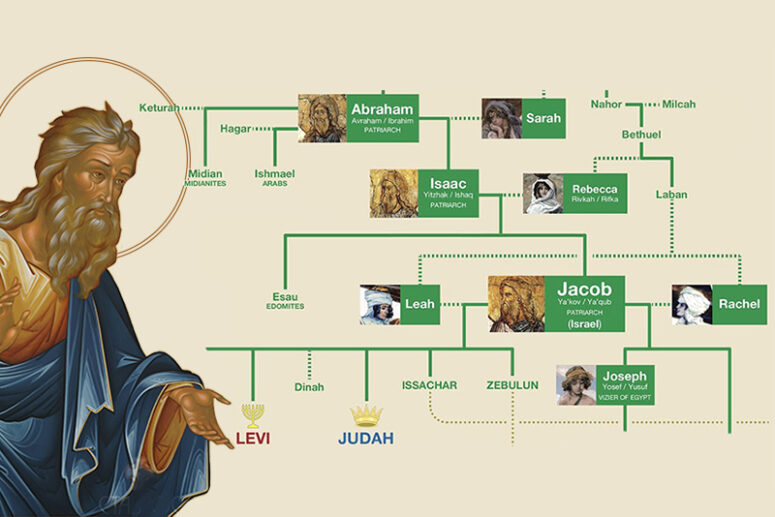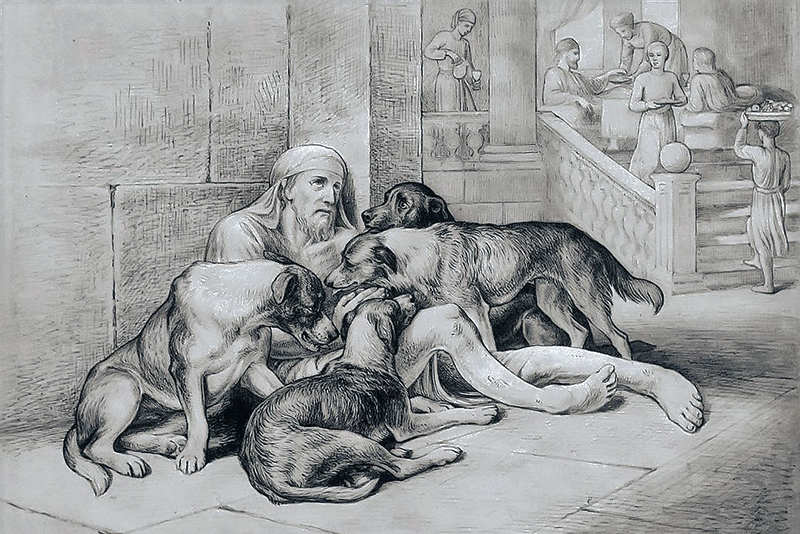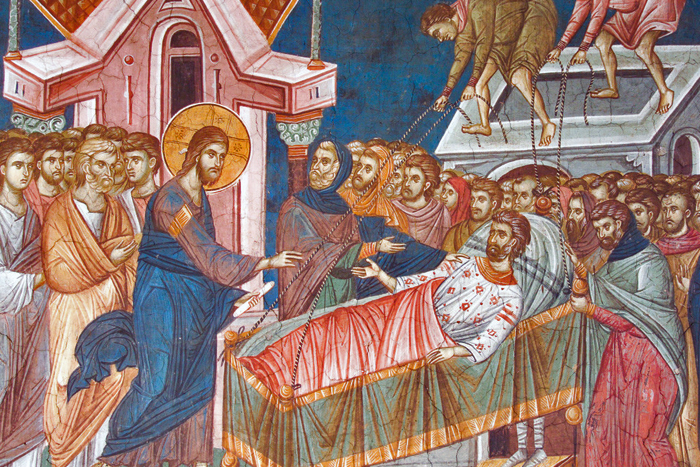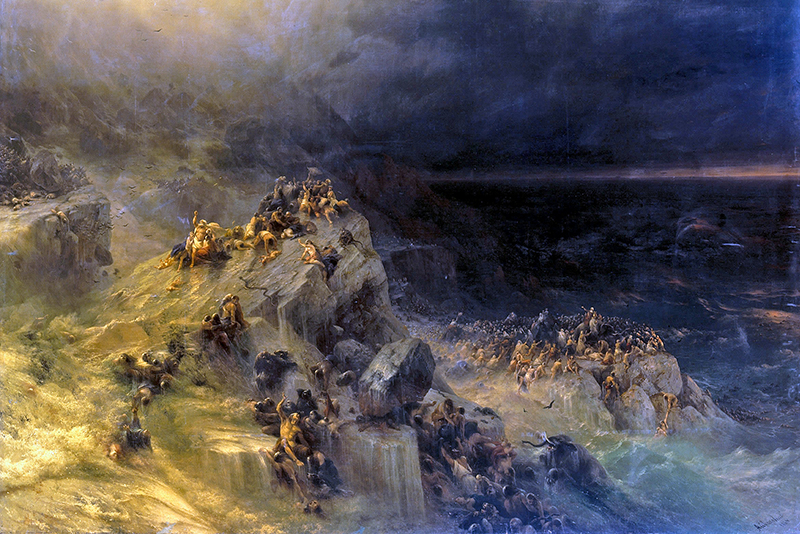
Luke 3: 23–4: 1;
Ephesians 5: 20-26
“Jesus was about thirty years old when he began his work. He was the son (as was thought) of Joseph son of Heli”. St Luke then lists seventy-six names, ending the chain with: “son of Enos, son of Seth, son of Adam, son of God”. It is surprising to read this endless enumeration of names, especially for modern readers who seldom know their own genealogy beyond great-grandfather.
How was this list of names preserved for us? From the history of the very first family, we know that Cain was the first to be born to Adam and Eve. Then came Abel. Then Cain, out of envy, killed Abel and deserved a curse. Then Seth was born. “The days of Adam after he became the father of Seth were eight hundred years; and he had other sons and daughters” (Genesis 5: 4). Before his Fall, Adam was with God, so he had a lot to share with his children. Not all of them, however, wanted to know about the creation of the world, the life in paradise, the Fall and the hope for the coming deliverance. Apparently, Seth did, and so his name appears on the list, next to the name of Adam.
It is said of Seth that after he “had lived one hundred five years, he became the father of Enosh” and that he lived “After the birth of Enosh eight hundred seven years, and had other sons and daughters”(Genesis 5: 6–7). Seth also passed on to his children what he had learned from Adam, and again, only Enos attended to it.
In a natural way, this chain leads us to Noah, the tenth from Adam, who “found favor in the sight of the Lord” and who was the only one whose descendants continued the human race anew after the flood. The rest of the earth, having lost its spiritual and historical memory, “was corrupt in God’s sight, … filled with violence” (Genesis 6:11) and perished.
Shem became the spiritual successor of Noah. Later, despite the abundance of descendants, the chain of this pious tradition was just as narrow. It is no coincidence that God chose Abraham, the eleventh from Shem, as the recipient of His message: “Go from your country and your kindred and your father’s house to the land that I will show you. I will make of you a great nation”(Genesis 12: 1,2). Abraham gave birth to Isaac; Isaac was the father of Jacob; Jacob had twelve sons, originating a whole nation, which remembered its genealogy. However, this collective memory was not always combined with personal piety. Remembering one’s ancestry became profitable. Besides giving people the confidence of being direct heirs of Abraham’s blessings, it also gave them, among other privileges, the right to own a plot in the promised land. For example, after the Babylonian captivity, the descendants of Levi, unable to present their genealogies, were deprived of their right to priesthood.
A question suggests itself, how does this genealogy, which ended two thousand years ago, relate to the modern Christians, coming from all nations to follow Christ? In reality, Jesus Christ ends this genealogy according to the flesh and begins an equally tangible chain of lineage according to the spirit. Having given spiritual birth to His Apostles by His preaching, the Lord sent them into the world. They ordained their successors, the bishops. History keeps the names of all bishops by succession in all lands. Bishops ordained priests; priests baptized people. Every Christian, through his or her new birth in Baptism, ascends to Christ Himself, and then through Christ to Adam. This is what biblical genealogy means to us Christians. Some people get bored reading this string of names, whereas its significance is truly breathtaking! Connecting the spiritual and material worlds, this tree stands firmly on the ground and rises all the way to the heavens, leaving no space for any monkey anywhere between its tightly connected links. Above all, it makes us the inseparable leaves on this tree, created and kept by God, the Lover of mankind, to Whom we give thanks “at all times and for everything in the name of our Lord Jesus Christ”.
Translated by The Catalogue of Good Deeds
Source: https://azbyka.ru/otechnik/Vyacheslav_Reznikov/propovedi-na-kazhdyj-den/25_2




